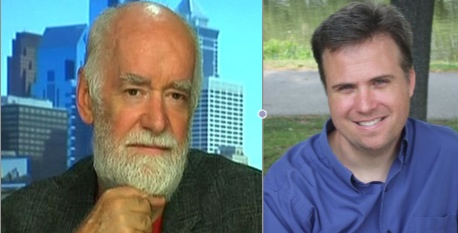A number of progressive and left-leaning writers in the US have jumped on a report by Wikileaks that the neo-con dominated National Endowment for Democracy (NED) and various other US-government linked organizations with a history of subversion and sowing discord abroad are operating in Hong Kong and on that basis are making the leap of “logic” that the democracy protests in Hong Kong must therefore be a creation of US policy-makers.
As a progressive, Chinese-fluent journalist who has spent years working in China and especially Hong Kong, and who has spent decades exposing the secret workings of US agencies and their network of fake NGOs in support of US empire, as well as their anti-democratic activities here in the US, I can understand why people might be suspicious, but I want to explain that Hong Kong is not Ukraine or even Venezuela or Brazil.
Long a colony of Great Britain, Hong Kong has a more than century-long tradition of people fighting for their freedom and for the right to have a government elected by themselves, and not simply appointed to rule over them. Especially in the years of the 1960s–’90s, as the time drew ever closer when the British would have to leave and an increasingly powerful and assertive China would assume sovereignty over this British colony, they won freedom of speech, press, religion, assembly and a legal system that largely protected them from arbitrary arrest and detention without charge. They even won a small degree of democratic power, as the British agreed grudgingly to allow a minority of the seats in the city’s Legislative Council (Legco) to be elected by popular vote by district. Britain did not, right up to the handover of sovereignty to China in July 1997, allow Hong Kongers to elect the city’s “mayor,” known as Governor, who remained a crown appointee of the UK right to the lowering of the Union Jack.
But because of the militant demands of Hong Kong people, who regularly took to the streets en masse to demand that freedom and democracy both be not just protected but expanded after the handover, China was forced — by its need to reassure foreign investors and companies that political stability and rule of law would be continued in Hong Kong under Chinese rule — to grant those demands. Thus the Basic Law that governs the relationship between China and what is now called the Hong Kong Special Administrative Region, assures the democratic election by popular vote of 40 of Legco’s 70 seats (the remainder are “elected” or chosen by various occupational sectors like law, banking, etc.). The Basic Law also guarantees the continuation of the key freedoms won by Hong Kong people: speech, press, religion, assembly, etc., including labor rights like the right to join unions and to strike. Significantly, nearly all of the elected seats in Legco have been won repeatedly by representatives of the various pro-democracy parties, which have the overwhelming support of Hong Kong residents.
I give this history to make it clear that there is a multigenerational history of struggling for and defending individual rights and of fighting for democratic rights in Hong Kong. Hong Kong people are not new to this stuff, and as an educated population with access to a world of information in their open media and wide open internet, they are not a population that is readily susceptible to the kind of manipulation and subversion practiced typically by the likes of the NED.
Certainly in a time like this, the NED, USAID (and the CIA), could be expected to try to gain some influence. Why not? But saying that they are active in Hong Kong and trying to have influence is a far cry from saying they are “behind” the protests or that they have “orchestrated” the protests. Those who make this leap are, I believe, exhibiting unintentionally an attitude of Western cultural superiority that assumes that “We Americans” are smart enough to see this kind of subversion, but Hong Kong people wouldn’t notice how they are being used.
 The mass protests demanding democratic election of Hong Kong's chief executive are not the creation of US agencies
The mass protests demanding democratic election of Hong Kong's chief executive are not the creation of US agencies









